HOW IT’S MADE: Butter makes everything better!
June 25, 2019 9:07 am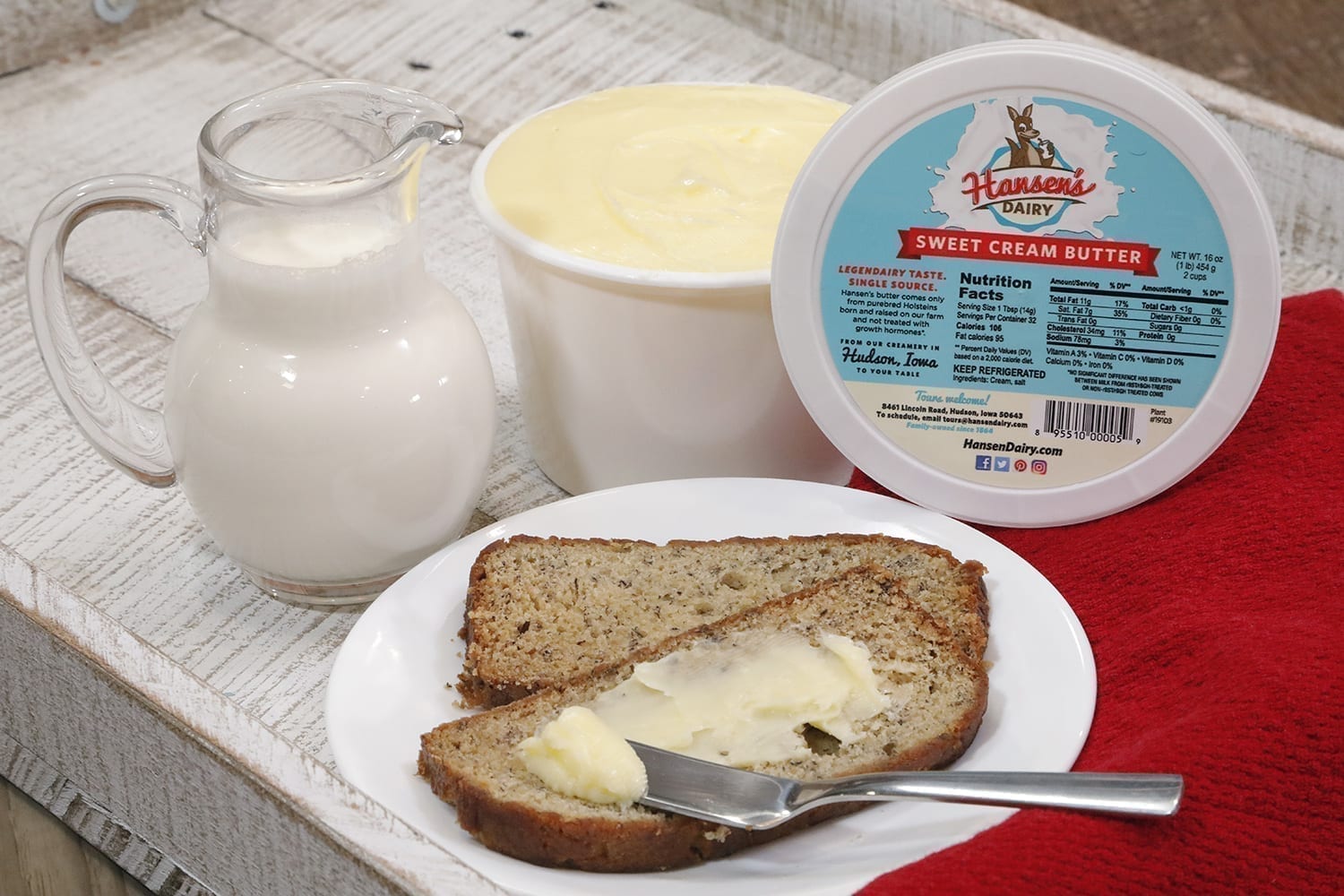
We make salted and unsalted butter in our Hansen’s Dairy creamery.
It’s June Dairy Month, and here at Hansen’s Dairy, we are celebrating all of our fresh dairy products! Each week in June we are posting a new segment in our “How It’s Made” series. For our final week, we are featuring our rich, creamy butter.
When we opened our on-farm creamery in 2004, we only produced whole milk. We soon realized there was customer demand for skim milk. When removing the butterfat to make low- and non-fat milks, that leaves a lot of cream left over. So beginning in 2005, we decided to utilize that cream for making butter and ice cream.
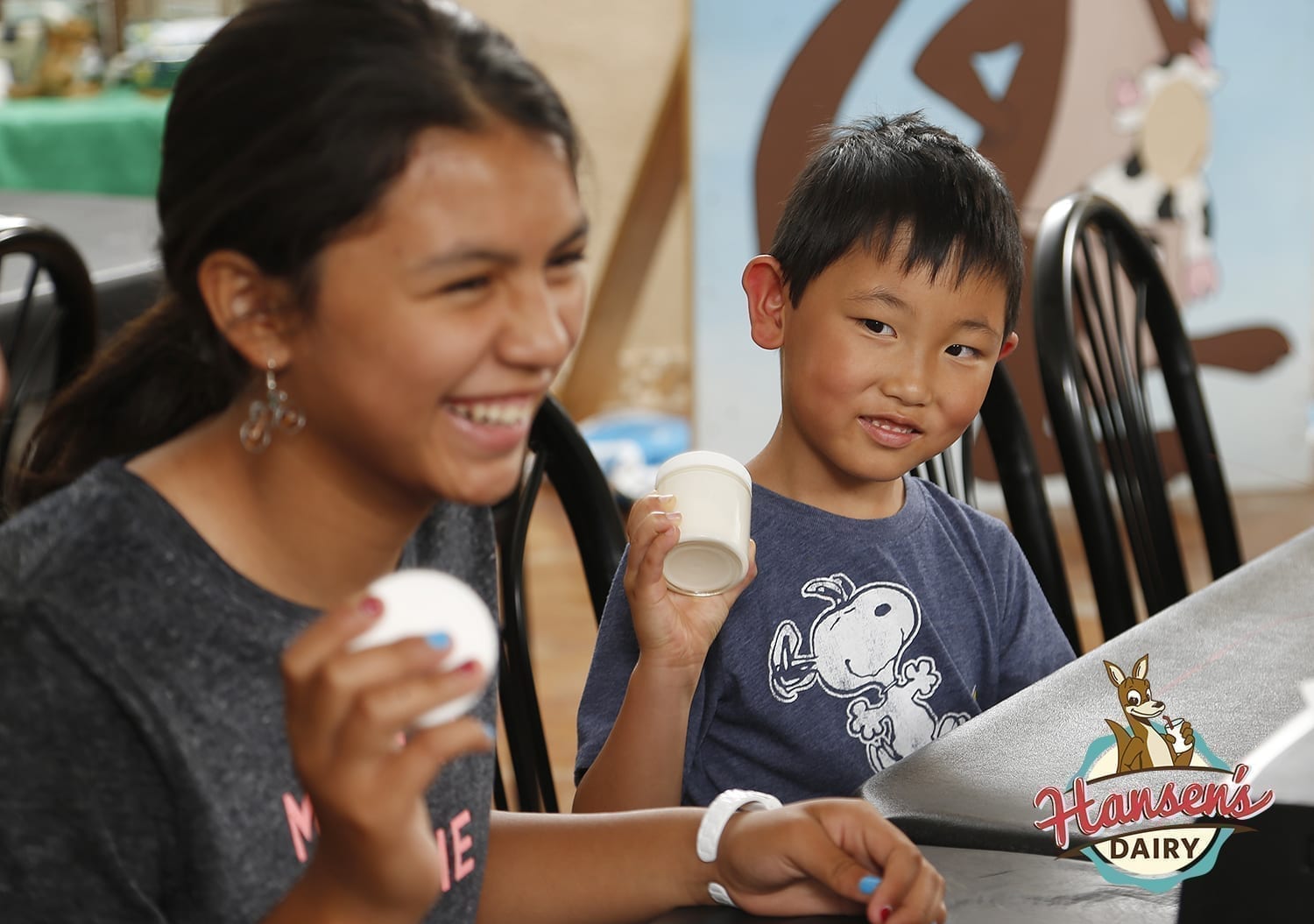
Hands-on tour participants shake their own jar of heavy cream to make butter at Hansen’s Dairy.
Butter is super simple to make. In fact, it’s one of the things that visitors on our hands-on tours get to do, and they are always pleasantly surprised at how tasty it is on crackers. I think it’s so good, it’s like frosting — and some of the younger kids must agree with me, because many of them skip the crackers and eat it right out of the jar!
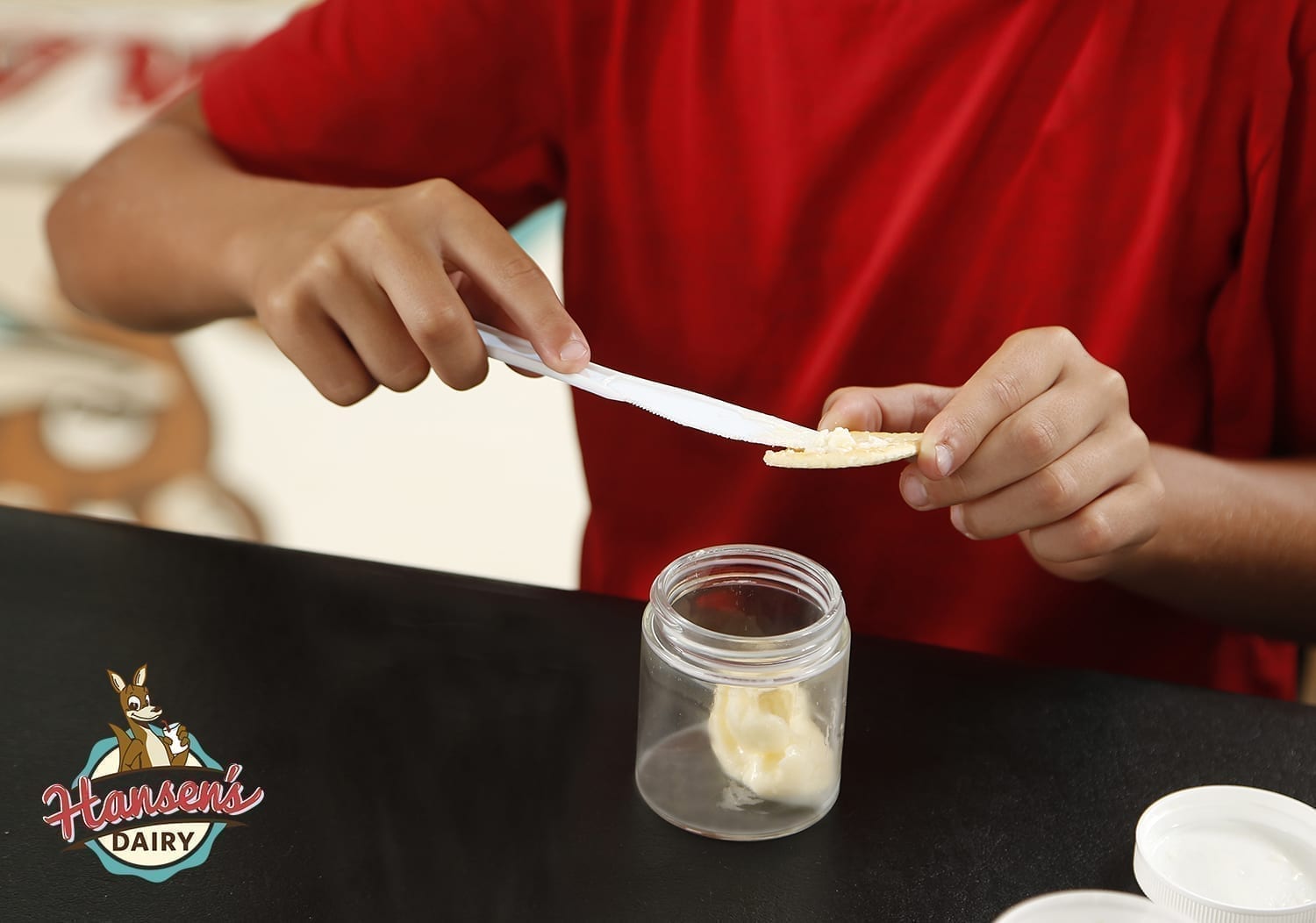
Hands-on tour participants are surprised at how easy and tasty it is to make their own butter.
In our creamery, we make what’s called “sweet cream” butter. That means it’s produced from fresh sweet cream, as opposed to butter made from cultured or sour cream.
Our salted butter contains only two ingredients: cream and salt. We also make unsalted butter, for those using butter when baking. However, unsalted butter is only available frozen, because salt is a preservative — and without it, the butter will spoil faster.
To make butter, one hundred gallons of pasteurized cream are put in the butter churn and rotated. Butter is formed simply by the agitation of the churn.
After 1 to 2 hours, the buttermilk is drained, revealing 330 pounds of rich, creamy butter. If salted butter is being made, salt is then added to the churn and mixed thoroughly.
Finally, the butter is carried to the filling station and is hand-packaged into 1 pound and 4 pound containers.
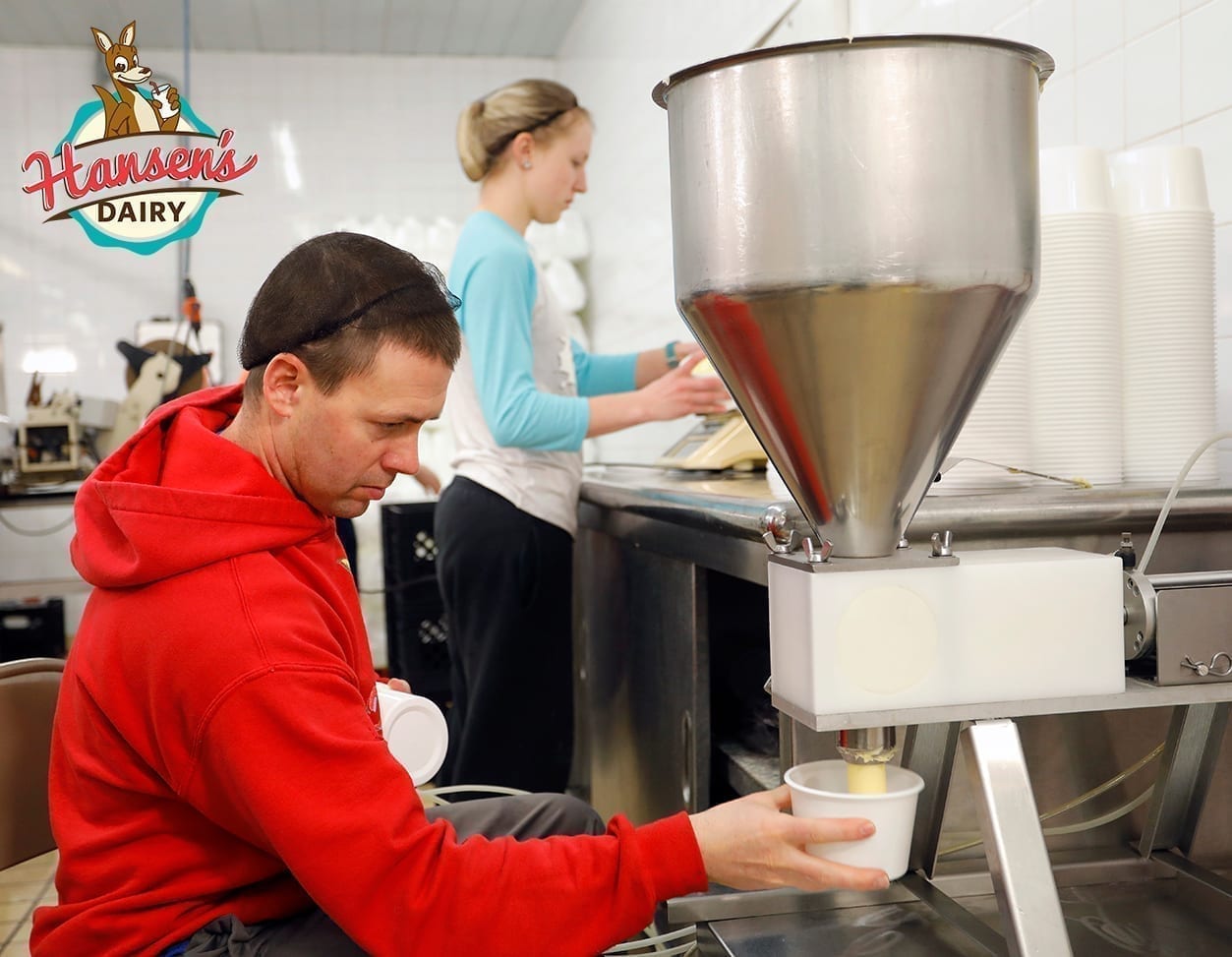
Brad Hansen individually fills one-pound tubs with butter.
Hansen’s butter is higher in fat content and lower in milk solids, which makes it a higher quality butter. The proof is in the deep yellow, all-natural color. No dyes are added to get that bright golden yellow — it’s naturally colored due to beta carotene in a cow’s diet, and the color may vary from pale yellow to bright yellow throughout the year.
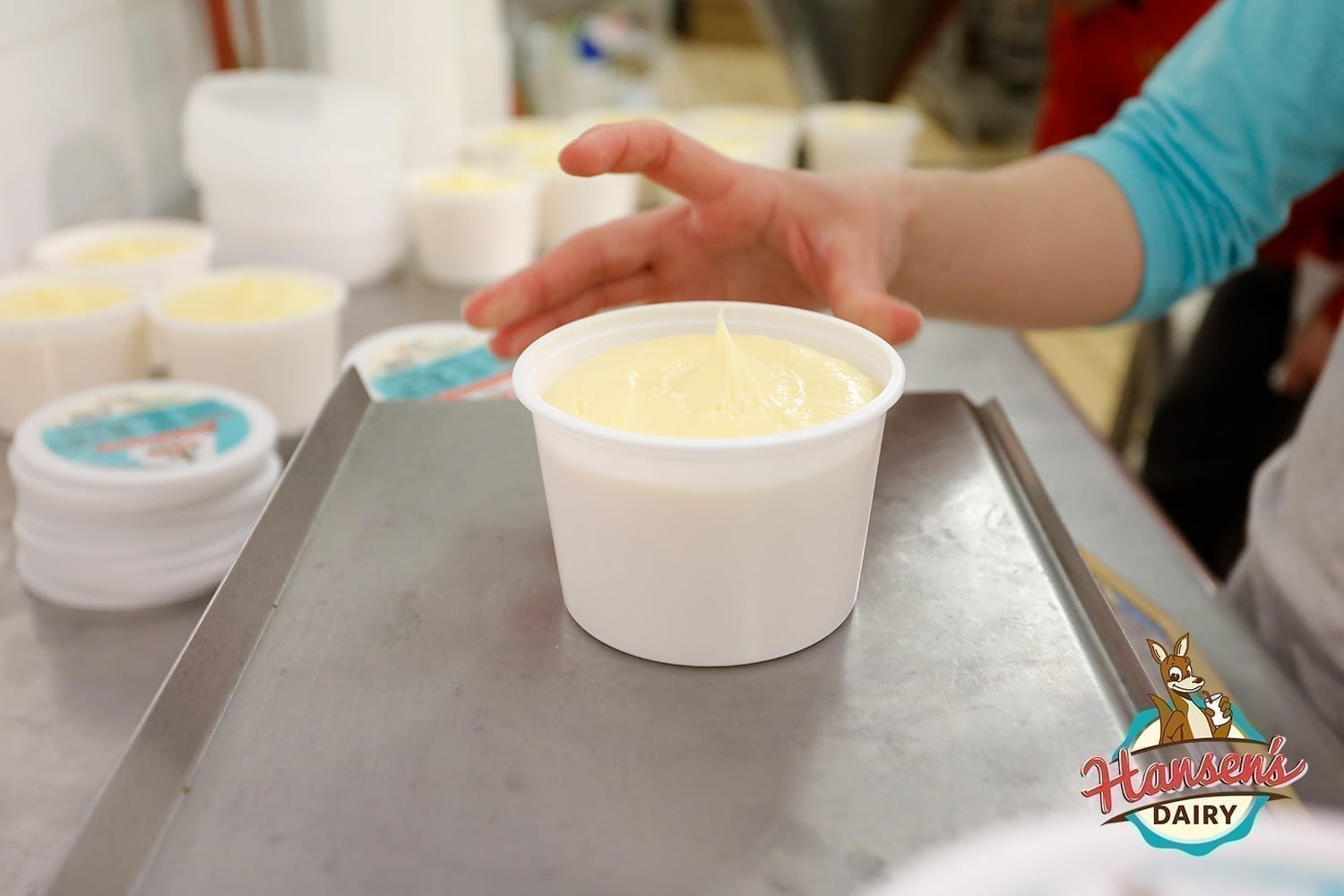
Hansen’s butter is naturally golden in color.
Our butter is the perfect addition to fresh bread, pancakes, waffles, baked potatoes, muffins, pastries, homemade cookies, quick breads … are you hungry yet? 🙂
We hope you’ve enjoyed our How It’s Made series. Check out our other posts:
HOW IT’S MADE: ‘Legendairy’ milk!

